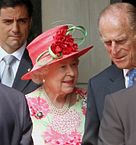
A few years ago – before I even knew the name ‘Meghan Markle’ – I penned a post exploring what titles any future wife of Prince Harry and their children might possess. By some margin, it’s had more hits than anything else I’ve ever written.
In the post, I stated my hunch – and it really was just a hunch – that upon marriage Harry would be created ‘Duke of Sussex’, a title he is rumoured to desire.
Perhaps I have more influence than I think. When the joyous news of the couple’s engagement was released, some media outlets were reporting as near certainty that America’s Meghan Markle would be transformed into Sussex’s Duchess upon marriage.
There are a number of logical reasons for thinking this. Most of the Dukedoms previously used for royalty are occupied and those that remain – such as Clarence – seem too tainted to touch.
But I still think that our popular media has jumped the gun. Let’s look at the other alternatives Her Majesty is presented with:
- A new Dukedom could be invented – By tradition, only Dukedoms that have previously been wielded by a Royal are bestowed on a Prince. But it’s only a tradition. Perhaps a new location will be honoured. Duke of London? Duke of Glasgow? All are possible. True, Her Majesty is more traditionalist than innovator – but she broke all the ‘rules’ when she made her third son Earl of Wessex.
- Harry could become ‘Duke of York in waiting’ – the monarch’s second son – which Harry will one day be – is traditionally created Duke of York. Clearly this cannot happen while Prince Andrew lives, but it should be noted that he has no son to succeed him. Perhaps Harry could have an Earldom bestowed upon marriage with the promise that he would one day become Duke of York when the title is vacant. This would mirror what happened with Prince Edward who will one day assume the title of Duke of Edinburgh.
- Harry might get no title at all – I don’t think this is likely. But as far as I know, no monarch has previously been in the position where he/she needed to give two of grandsons peerages (George V’s brother was dead by the time George was made Duke of York). She might decide that it’s for Charles to dish out his second son’s title when he eventually gets the throne. She was, after all, quite happy to leave two of her cousin’s wives with the clumsy sounding styles of Princess Richard of Gloucester and Princess of Michael of Kent. Perhaps Meghan will simply be HRH Princess Henry of Wales. Stranger things have happened…
For what it’s worth, I still think Dukedom of Sussex is going to be the one that lands. I’ve read rumours that Harry has always wanted it (I have no idea if they’re true) and it seems that Her Majesty does take personal wishes into consideration. But to report it as a done deal – like so much of our media has (and don’t even get me started on the American press) is just continuing the trend of lazy journalism that bombards conversation on these topics.
So much of what I discuss on this site can never be truly known. The great thing about this subject is that it’s only a matter of months before time will tell…


